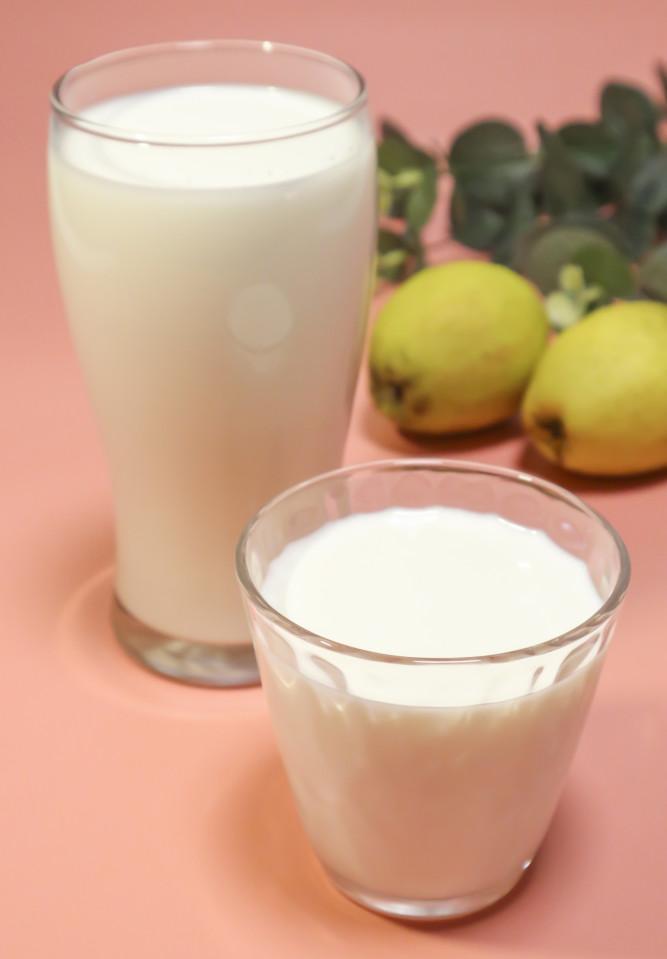We all know the important role of calcium in children's growth and development, according to the "Dietary Guidelines for Chinese Residents", the recommended amount of dietary calcium for children aged 2 to 3 years is 600mg per day, and the calcium requirement for children and adolescents over 4 years old is 800 to 1200mg.
Therefore, many parents regard giving their children calcium supplementation as a top priority, but if the child does not like to drink pure milk, or lactose intolerance, how to supplement calcium?
Calcium supplementation, dairy products are the first choice
Milk and dairy products are rich in calcium and highly absorbed and are the best source of calcium supplementation. If your child doesn't like to drink pure milk, try dairy products such as yogurt, cheese, etc.

Yogurt is fermented, lactose and protein are partially decomposed, and are easily digested and absorbed.
Cheese is a dairy product made after concentrating the calcium and protein of milk, and has a high nutrient density. Cheese is also fermented, removing most of the lactose, and is suitable for lactose intolerant children.
Milk on the market contains 110 to 120 mg of calcium per 100 ml. According to dietary guidelines, a 200ml serving of milk is equivalent to 25g of cheese or 250ml of yogurt containing calcium.
And yogurt and cheese taste better and are a good alternative to pure milk.
Some parents may worry that eating yogurt for a long time will lead to excessive sugar intake; if you eat too much cheese, sodium may exceed the standard. The solution is to choose low-sugar yogurt and cheese with a high calcium-sodium ratio, and the other is to balance all kinds of dairy products.
In addition, in addition to directly letting the child drink, you can also spend some thoughts on other aspects, such as using milk and noodles, stewing soup with milk, steaming eggs or homemade pastries. Although the nutrition of the milk is lost after heating, calcium supplementation is basically not affected.
Eat a balanced diet and eat more foods high in calcium
In addition to dairy products, green leafy vegetables, tofu, nuts, etc. are also good calcium supplements.
Some vegetables have a calcium content comparable to, or even higher than, milk. Common vegetables with high calcium content include cabbage, amaranth, kale, sweet potato leaves, chinese cabbage, rapeseed, edamame, hollow cabbage and so on.
Spinach and other astringent vegetables have a lot of oxalic acid content, and blanching water before stir-frying can remove oxalic acid; kale, small rapeseed, and Chinese cabbage have a low content of oxalic acid, and there is no need to remove it specially.
Dietary guidelines recommend a daily intake of 300 to 500 g of vegetables, which can have about 300 mg of calcium.
Each meal is eaten with a plate of vegetables, which can increase dietary fiber while also supplementing calcium.
Brine or gypsum point tofu is also a common high-calcium food, 100g of tofu contains about 120mg of calcium, a box of 350-400g of tofu, containing 400-500mg of calcium. Pan-fried tofu and mapo tofu, replenish calcium while also taking into account the delicious taste.
As a healthy snack, nuts are also high in calcium, and 100g of nuts contain 100-200mg of calcium. Always prepare some nuts, whether at home or traveling, come to a bag when hungry, fill your hunger and replenish calcium.
According to the dietary guidelines, 500g (500mg calcium) of dairy products per day, 300g-500g (300mg calcium) of green leafy vegetables, 100g of tofu (100mg calcium), combined with some fish and eggs, or nuts, tahini, etc., supplement with an additional 100mg of calcium, and 1000mg of dietary calcium per day.
Dietary calcium is not enough, calcium supplements to supplement
If the child is in a rapid growth and development stage, the calcium demand is high, and the dietary intake of calcium is not enough, calcium supplementation can be selected.
To give children calcium supplementation to follow two principles, one to improve the absorption rate, the other to reduce adverse reactions.
Calcium is taken with three meals, and a large amount of gastric juice is secreted, which is conducive to digestion and absorption. At the same time, taken with meals, the alkaline nature of calcium is neutralized by food mixing, which can reduce the irritation of the gastric mucosa.
Considering the balance of calcium in the blood and the difference in the secretion of hormones during the day and night, if you only take calcium at one meal a day, taking calcium tablets at dinner is the best time.
In addition, whether it is dietary calcium or calcium supplementation, vitamin D supplementation is required to improve calcium absorption.
Calcium supplementation is the preferred food calcium supplement, healthy and economical. Guide children to eat a balanced diet, choose foods high in calcium every day, and ensure the intake of dairy products and green vegetables.
Calcium is a supplement of dietary calcium, which needs to be supplemented according to the family's eating habits and the actual situation of the child.
While meeting calcium intake, it is supplemented by vitamin D to ensure the absorption and metabolism of calcium.